The COVID-19 pandemic pushed Barry Hall to depart from decades of stage theater to filmmaking — and it’s yielded unexpected rewards.
Hall originally wrote the play Nuclear Family for last year’s Taipei Shorts program, but turned it into an 18-minute movie after the program got pushed back several months. The play is basically two alternating monologues by a long-separated couple who are being interviewed about their famous son.
“I always had it in my mind as a good film that’s pretty simple to shoot,” Hall says. “I was planning to shoot it after the stage production, but the order got reversed. That got me into doing films because I couldn’t do it on stage when I wanted to.”
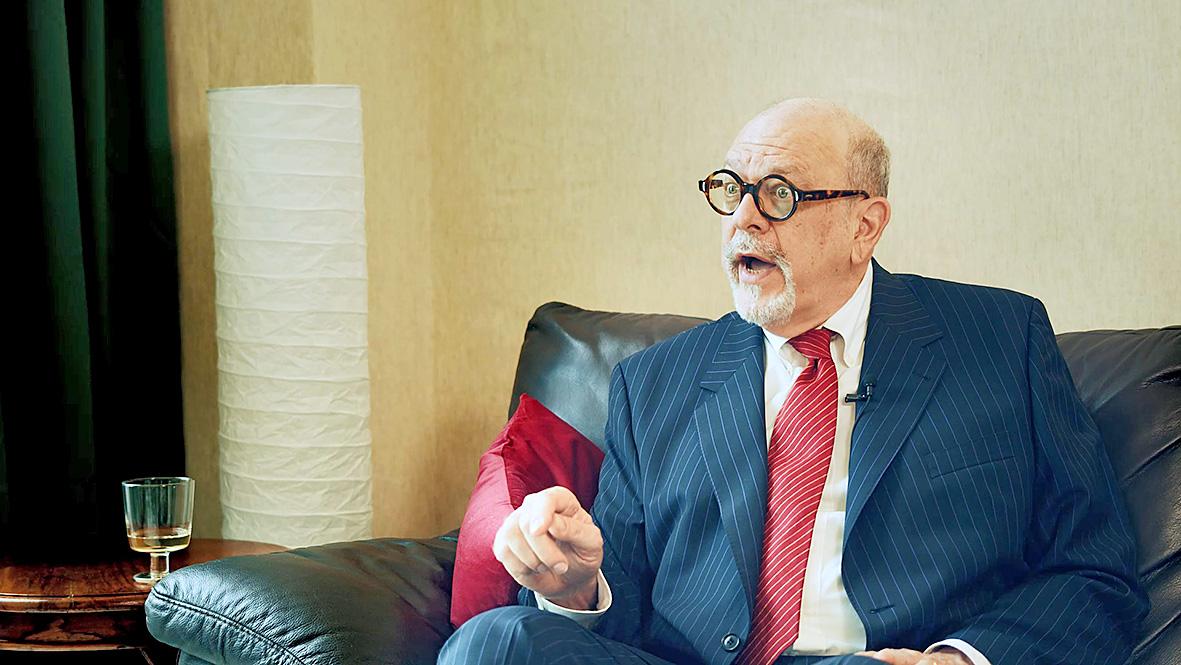
Photo courtesy of Barry Hall
The experience quickly led to Hall making his next short, Over, which features a succession of 13 women angrily airing their grievances in seven languages toward an unknown target.
“It’s about the mistakes we make in relationships,” Hall says. “It’s a play on the word ‘over;’ over and over again we do this stuff, then it’s over.”
The two films have been getting a lot of international exposure through various film festivals across the world and bagging a few awards along the way — most recently with Nuclear Family being named best independent film last week at the Ukranian Indie Online Film Award.
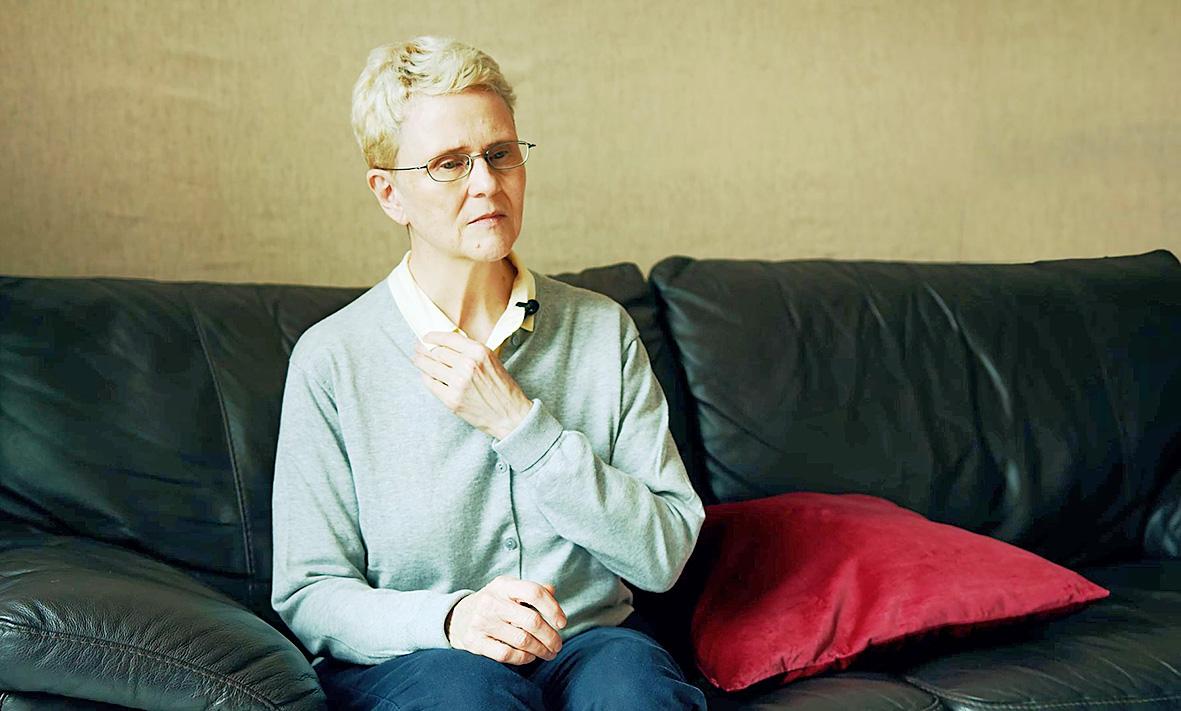
Photo courtesy of Barry Hall
DC Rapier, a mainstay in Taipei’s English-language theater and music scene, won his first best actor award at the Madras Independent Film Festival and also made it to best lead actor finalist for the Golden Bridge Istanbul Short Film Festival’s spring season.
Over claimed best experimental short film for April in the Uruvatti International Film Festival and best editing for the spring season at Japan’s Top Indie Film Awards.
“The major award season is in the fall and winter and we’re waiting on the bigger-name, more prestigious festivals,” Hall says. “Now it’s just the smaller ones — but very respectable ones.”
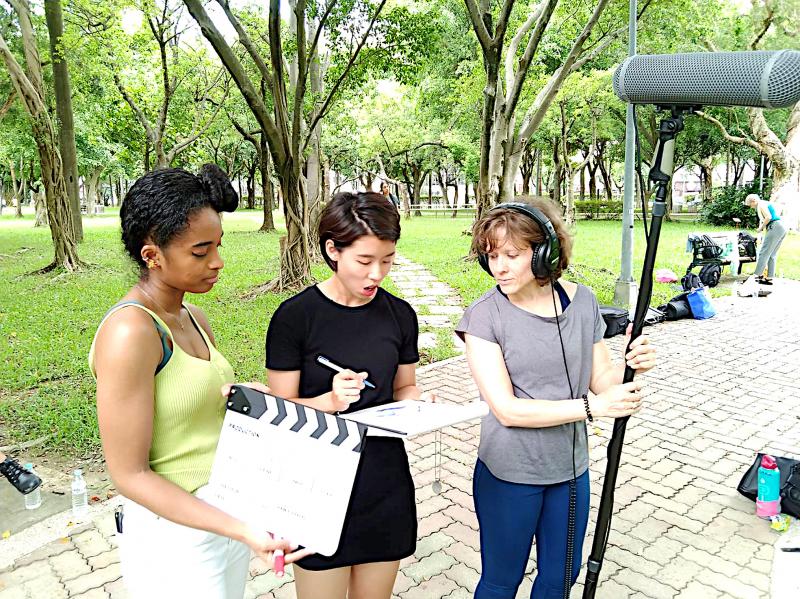
Photo courtesy of Barry Hall
PANDEMIC BLUES
Barry Hall returned to Taiwan about six years ago after a decade-long hiatus, and got back into theater around 2017 with Brook Hall’s (no relation) Diary of Anne Frank. He made many of his current connections through that production. For example, Rapier and Sarah Brooks, the only characters in Nuclear Family, portrayed Ann Frank’s parents in that show.
“[Brook Hall] is the ancestor of all of us in Taiwan,” Barry Hall quips.
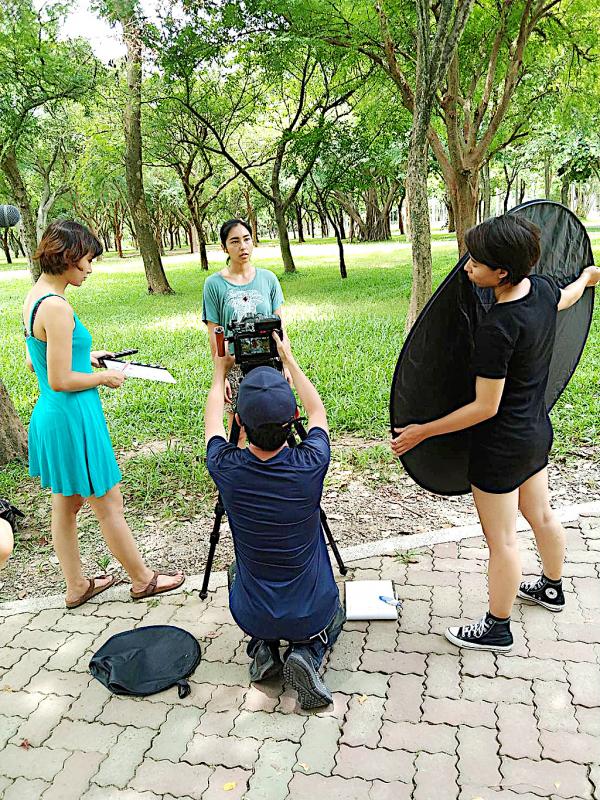
Photo courtesy of Barry Hall
After Brook Hall left Taiwan in 2018, Barry Hall and others have been trying to fill his shoes. John Brownlie started Taipei Shorts to promote original productions by local playwrights, while Barry Hall formed the Elsewhere Theater Company to put on more established, reputed plays. The group made its debut last October with the macabre Empanada Loca. But things have been moving slowly due to the pandemic.
“I was hoping that we’d done three or four productions by now, but we’ve only done one,” Hall says.
Filmmaking has been fruitful for him, though, and Over has been accepted to 16 festivals so far. Hall says Over is getting exposure due to its highly emotional, in-your-face format, while the tension builds up slowly in Nuclear Family.
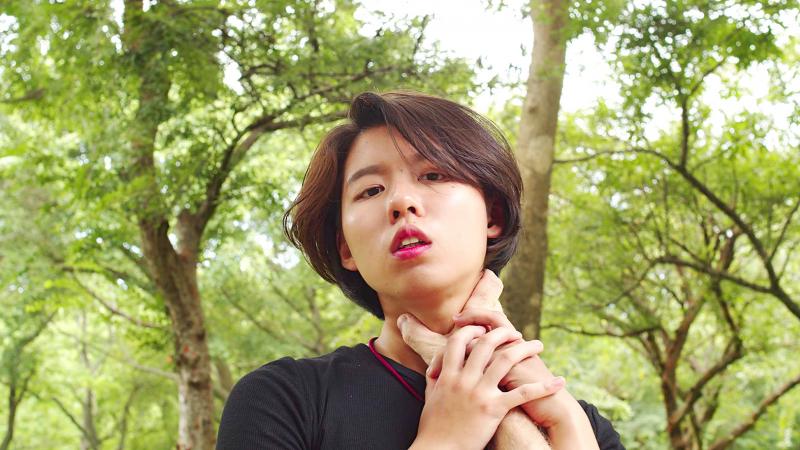
Photo courtesy of Barry Hall
“A lot of these festivals get hundreds of films, and if they don’t like the first five minutes they’ll turn it off,” Hall says. “Over opens with a woman yelling at the screen, and that’s easier to stand out on the festival circuit. It’s emotional, but people don’t know where it’s going.”
LEARNING CURVE
It was a steep learning curve for Hall to switch to film.
“It’s much more visual, you can get the camera in close, you can do more with visual effects, people don’t have to be talking as much because you can do a lot more with the camera work,” he says. “I still love theater, that’s my background; I just wish it was easier to do. Now it’s almost impossible,” he adds.
Hall learned a lot from the local filmmakers he worked with, including cinematographer William Chen (陳惟元) and Huang Li-ting (黃莉婷), a recent college graduate who served as assistant director on Nuclear Family and edited and acted in Over, for which she won an editing award.
This is Huang’s first time working with English-speakers, and although she is proficient in the language, it was a challenge to convey technical and professional ideas to a crew that’s more used to theater production.
She says she enjoyed the layered but rapid emotional buildup and the sound design in Over.
“It’s very intense,” she says. “Each woman portrays strong negative emotions, and the audience doesn’t know who they’re talking to and why they’re so pissed off. And the sound is drawn from elements of Hall’s experience in Taipei, such as bus noises and temple festivals.”
Rapier says he wanted to study both acting and music in college, but the schools he considered didn’t offer those courses. He remained active in theater, though, and met Hall through Diary of Anne Frank.
“Nuclear Family is [a] bizarre play. First of all there’s no real dialogue, it’s just going back and forth between monologues and the questioner is never heard,” Rapier says. “It was really odd to do it because when you think of theater, you think of conversations but in this case there wasn’t any.” He added that he enjoyed acting in the play, due to its unusual, experimental structure.
Nuclear Family is a purely American story, while Over brings an international flair — but Hall has yet to write anything Taiwan-centric.
“I’m getting more acquainted with the country again, my sons are going to a local school and I’m more immersed in the culture than I used to be. I have some ideas but I haven’t committed anything to paper yet,” he says. “If you’re a foreigner, there are all sorts of oddities in Taiwan — like the thing about if you see a red envelope with money in it, don’t pick it up. That can be the starting point to a whole film.”

On April 26, The Lancet published a letter from two doctors at Taichung-based China Medical University Hospital (CMUH) warning that “Taiwan’s Health Care System is on the Brink of Collapse.” The authors said that “Years of policy inaction and mismanagement of resources have led to the National Health Insurance system operating under unsustainable conditions.” The pushback was immediate. Errors in the paper were quickly identified and publicized, to discredit the authors (the hospital apologized). CNA reported that CMUH said the letter described Taiwan in 2021 as having 62 nurses per 10,000 people, when the correct number was 78 nurses per 10,000

As we live longer, our risk of cognitive impairment is increasing. How can we delay the onset of symptoms? Do we have to give up every indulgence or can small changes make a difference? We asked neurologists for tips on how to keep our brains healthy for life. TAKE CARE OF YOUR HEALTH “All of the sensible things that apply to bodily health apply to brain health,” says Suzanne O’Sullivan, a consultant in neurology at the National Hospital for Neurology and Neurosurgery in London, and the author of The Age of Diagnosis. “When you’re 20, you can get away with absolute

When the South Vietnamese capital of Saigon fell to the North Vietnamese forces 50 years ago this week, it prompted a mass exodus of some 2 million people — hundreds of thousands fleeing perilously on small boats across open water to escape the communist regime. Many ultimately settled in Southern California’s Orange County in an area now known as “Little Saigon,” not far from Marine Corps Base Camp Pendleton, where the first refugees were airlifted upon reaching the US. The diaspora now also has significant populations in Virginia, Texas and Washington state, as well as in countries including France and Australia.

May 5 to May 11 What started out as friction between Taiwanese students at Taichung First High School and a Japanese head cook escalated dramatically over the first two weeks of May 1927. It began on April 30 when the cook’s wife knew that lotus starch used in that night’s dinner had rat feces in it, but failed to inform staff until the meal was already prepared. The students believed that her silence was intentional, and filed a complaint. The school’s Japanese administrators sided with the cook’s family, dismissing the students as troublemakers and clamping down on their freedoms — with